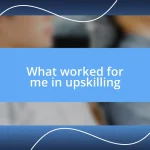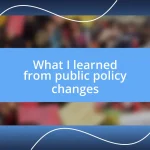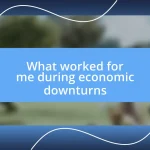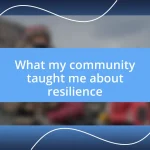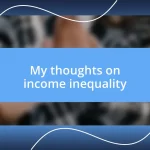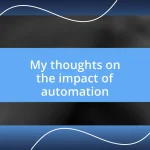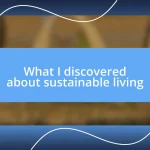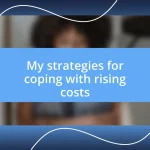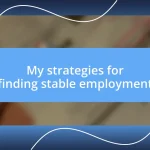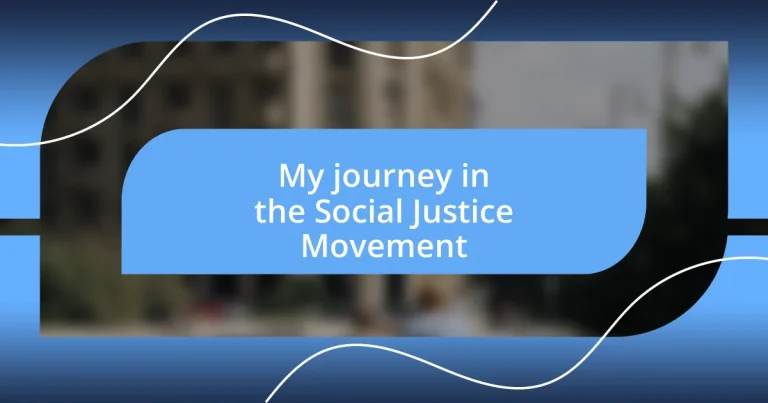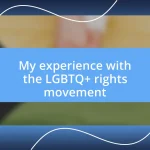Key takeaways:
- Participation in a workshop with survivors highlighted the power of storytelling in driving change and reclaiming agency.
- Engagement in local town hall meetings revealed the significant impact of local policies on housing inequality.
- Collaborating with diverse activist groups emphasized the importance of strategic communication and building inclusive relationships for effective advocacy.
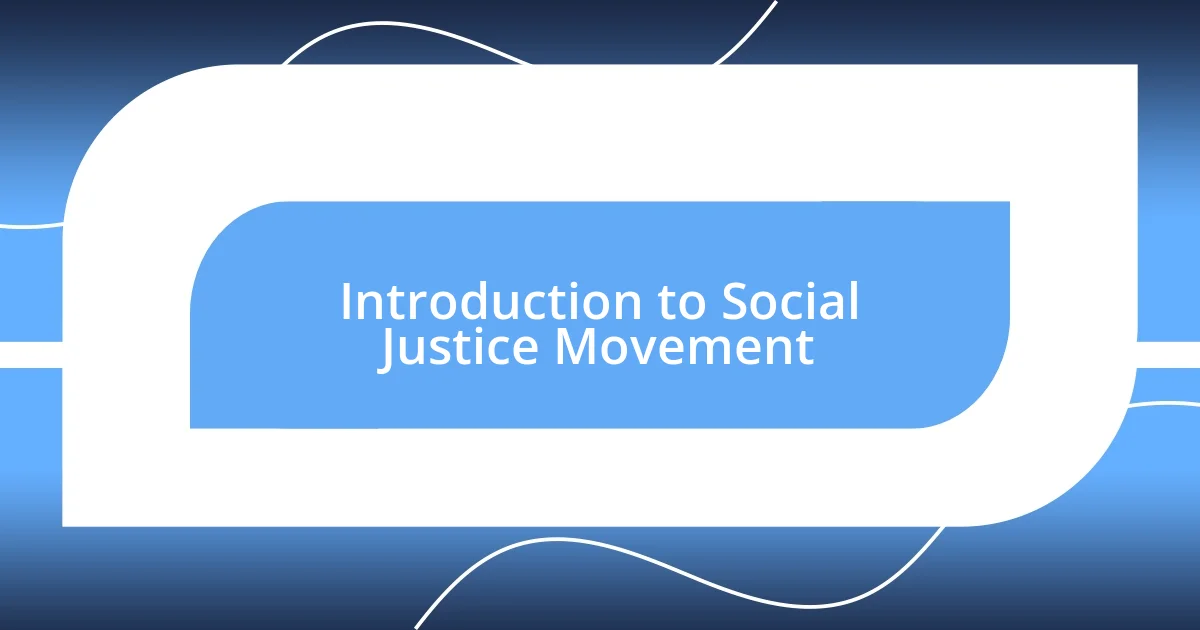
Introduction to Social Justice Movement
The social justice movement is a dynamic and ongoing quest for equality and fairness, rooted in the belief that every person deserves equal rights and opportunities. I remember attending my first rally—there was something electric about being surrounded by people who not only understood injustice but were willing to stand up for change. Can you recall a moment when you felt compelled to speak out for what’s right?
This movement encapsulates various issues, from systemic racism to gender equality, which intersect in ways that can be overwhelming yet transformative. When I witnessed the powerful stories shared by individuals from marginalized communities, I realized that social justice is not just a theoretical concept—it’s deeply personal and affects real lives. How do we bridge the gap between awareness and action to foster lasting change?
At its core, the social justice movement is about power: who has it and who doesn’t. I found myself questioning my own privileges and responsibilities in this landscape. Isn’t it fascinating how acknowledging our own position can drive us to engage more deeply with the struggles of others? This conversation is crucial as we navigate our roles in a world that desperately needs compassion and advocacy.
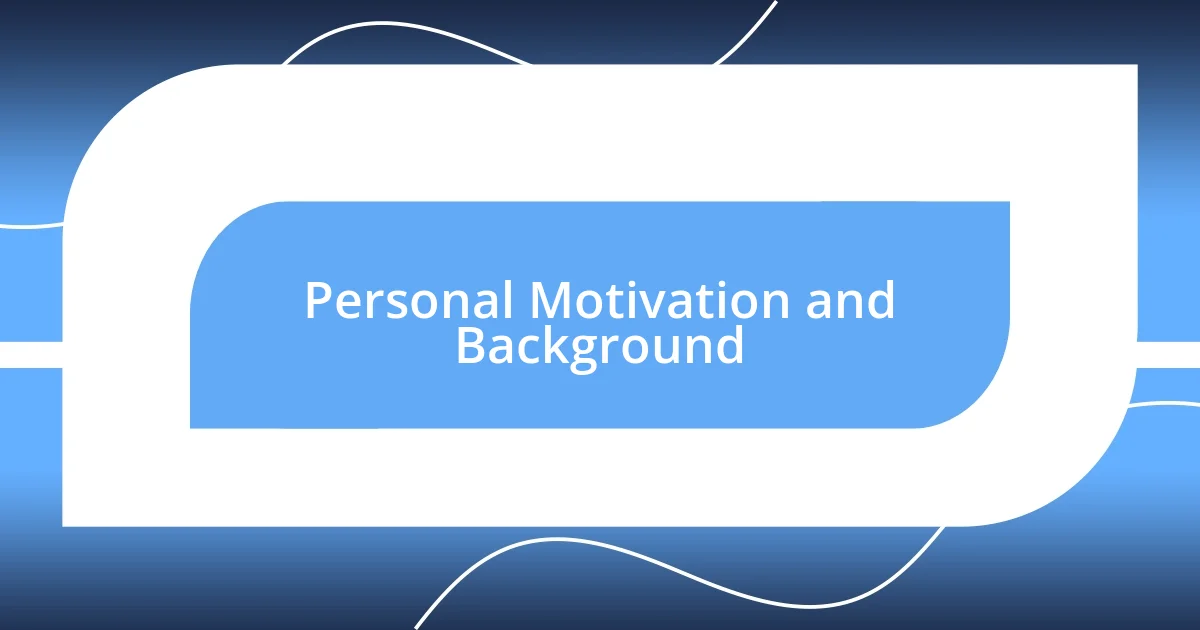
Personal Motivation and Background
Growing up in a community that faced various social challenges sparked my journey into the social justice movement. I often remember the evenings spent listening to my grandmother recount her experiences with discrimination. Her stories instilled in me a sense of urgency to fight against injustice and provided a profound understanding of the struggles that many face daily.
- My grandmother’s influence ignited my passion for equality.
- Witnessing friends cope with unfair treatment drove me to action.
- Early volunteer experiences opened my eyes to systemic issues in our society.
- The desire to amplify the voices of the marginalized fuels my commitment every day.
Through personal experiences, I’ve learned that motivation often stems from the injustices we witness and the people that inspire us to take a stand. Each story I heard pushed me to reflect on my own privilege and responsibility, shaping my understanding of the broader implications of social inequality. It became clear to me that change is not just about advocating for others; it’s about transforming ourselves in the process.
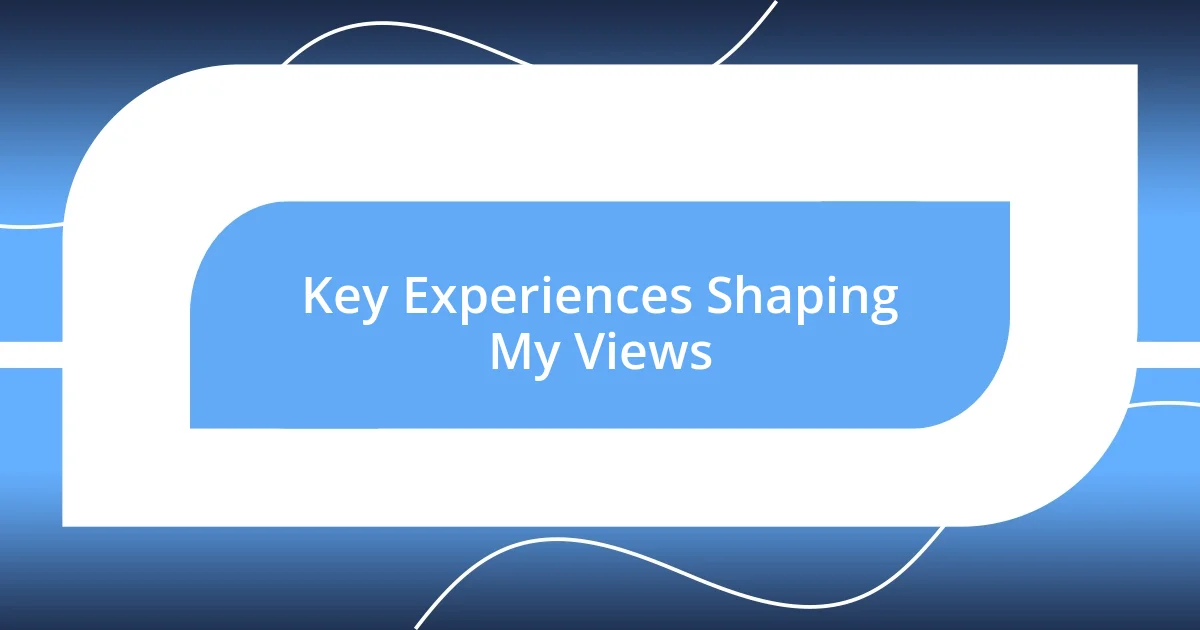
Key Experiences Shaping My Views
The pivotal experiences that have shaped my views on social justice are rooted in moments that sparked deep reflection and action. One standout memory was participating in a community workshop where survivors of violence shared their stories. Listening to their raw and powerful narratives left me both moved and inspired. It struck me that their courage was not just about survival, but about reclaiming agency in a society that often silences them. I wondered, how can I harness this energy to contribute to their fight?
Another key moment was when I accompanied a friend to a local town hall meeting. We sat through heated discussions about housing inequality, and I felt a mix of anger and determination. The harsh reality that many families were being pushed out of their homes resonated within me. It was a wake-up call, prompting me to explore the systemic roots of such crises in my own neighborhood. I started asking questions like, what role do local policies play in perpetuating injustice?
Reflecting on these experiences, I recognize that the journey has been about building empathy and understanding the various intersections of identity and injustice. Each encounter—whether at rallies, workshops, or community meetings—has broadened my perspective. This path is less about having all the answers and more about embracing a commitment to listen and learn continually.
| Experience | Insight Gained |
|---|---|
| Workshop with survivors | Understanding the power of storytelling in driving change |
| Town hall meeting on housing | Realizing the impact of local policies on social inequality |
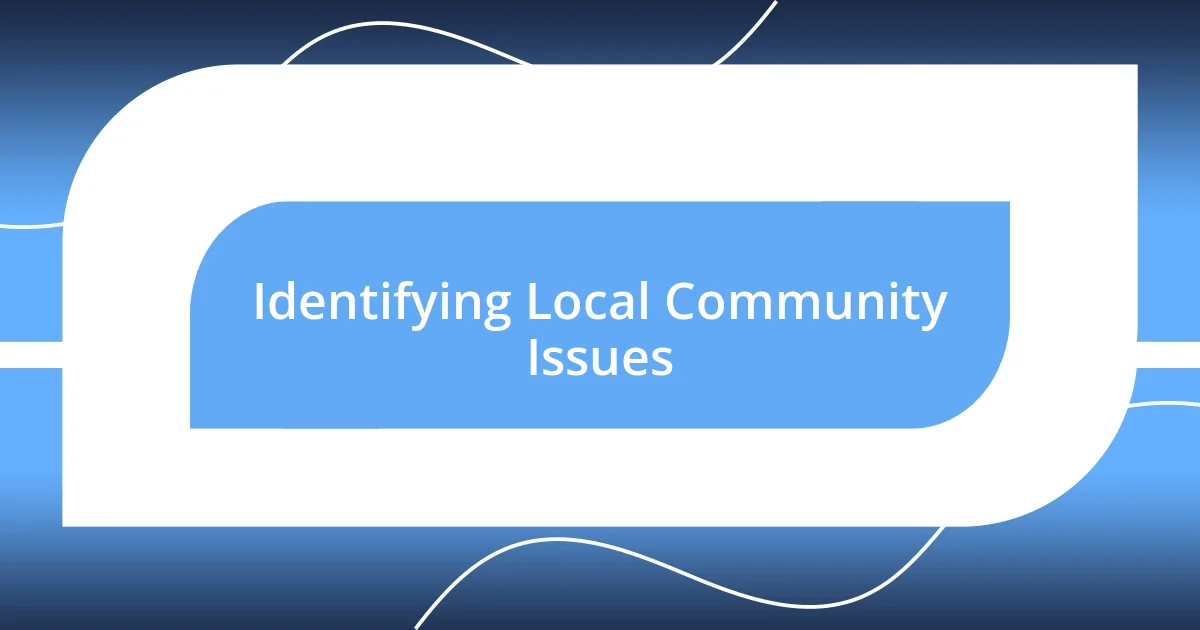
Identifying Local Community Issues
Identifying local community issues often starts with attentive observation and genuine conversation. I remember walking through my neighborhood and noticing the abundance of abandoned buildings, which stirred questions in my mind. What stories do these places hold? Who do they affect? It became clear to me that these physical spaces were more than just structures; they represented lost opportunities and unaddressed needs within the community.
On another occasion, I volunteered at a local food bank and was struck by the heartfelt conversations exchanged between volunteers and recipients. Many individuals shared their struggles with food insecurity, and I couldn’t help but feel their frustration. Hearing their stories made me realize how interconnected we all are; one person’s struggle ripples through families and neighborhoods. What systemic barriers keep these issues alive?
As I dove deeper into community organizing, I attended open forums where residents voiced their concerns about environmental pollution. The palpable anger in the room was a wake-up call for me. It struck me that these were not isolated issues; they were symptoms of larger systemic inequalities. Could our local response to such grievances ignite broader change? I’ve learned that transformation often begins when we recognize and elevate the voices already calling for change.
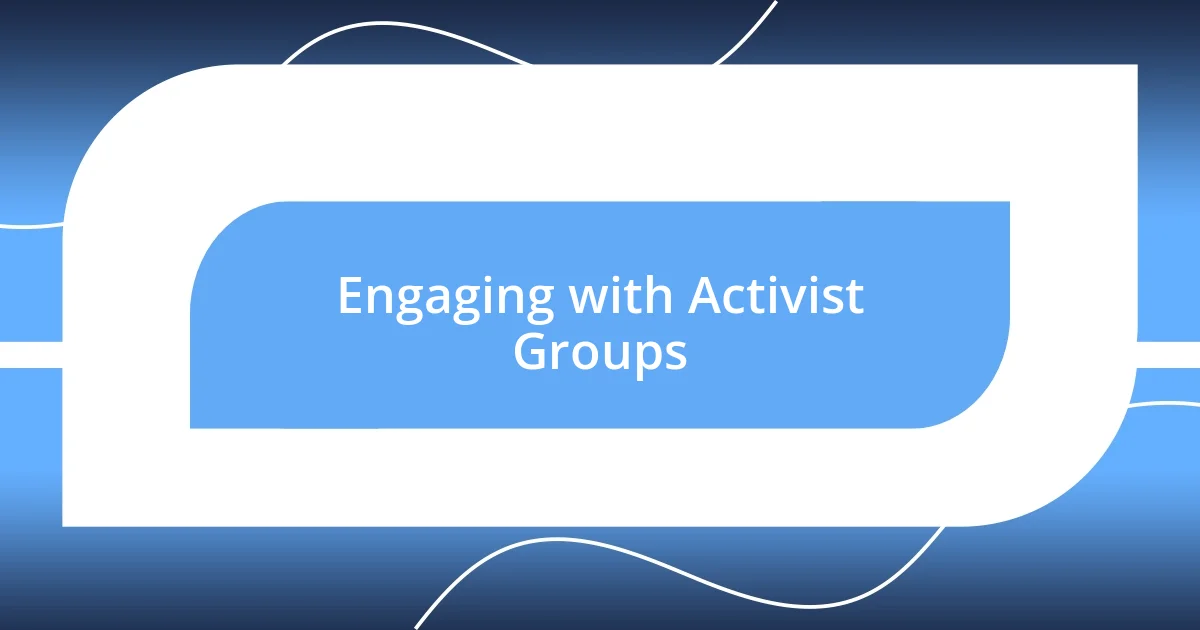
Engaging with Activist Groups
Engaging with activist groups requires an openness to collaboration and a willingness to learn. I recall my first gathering with a climate justice coalition; I felt a mix of excitement and nervousness as diverse individuals brainstormed solutions to environmental issues affecting our city. It wasn’t just about sharing ideas, but about weaving our distinct narratives into a collective tapestry of activism. I wondered, how can our different backgrounds strengthen our cause?
I remember being part of a grassroots campaign aimed at increasing voter awareness. Each meeting was electric with passion, yet grounded in strategy. Listening to seasoned activists share their successes and failures taught me invaluable lessons about resilience and adaptability. It raised a question in my mind: how can past experiences shape our current actions in such a dynamic landscape?
Participating in these groups transformed my perspective on activism. I learned how essential it is to create inclusive spaces where everyone’s voice matters. Once, during a rally, I met an older gentleman who had been fighting for social justice since the Civil Rights Movement. His stories filled me with awe and inspiration, making me realize that our efforts today are a continuation of a much larger fight. I often ask myself, how can I honor that legacy while forging new paths for future activists?
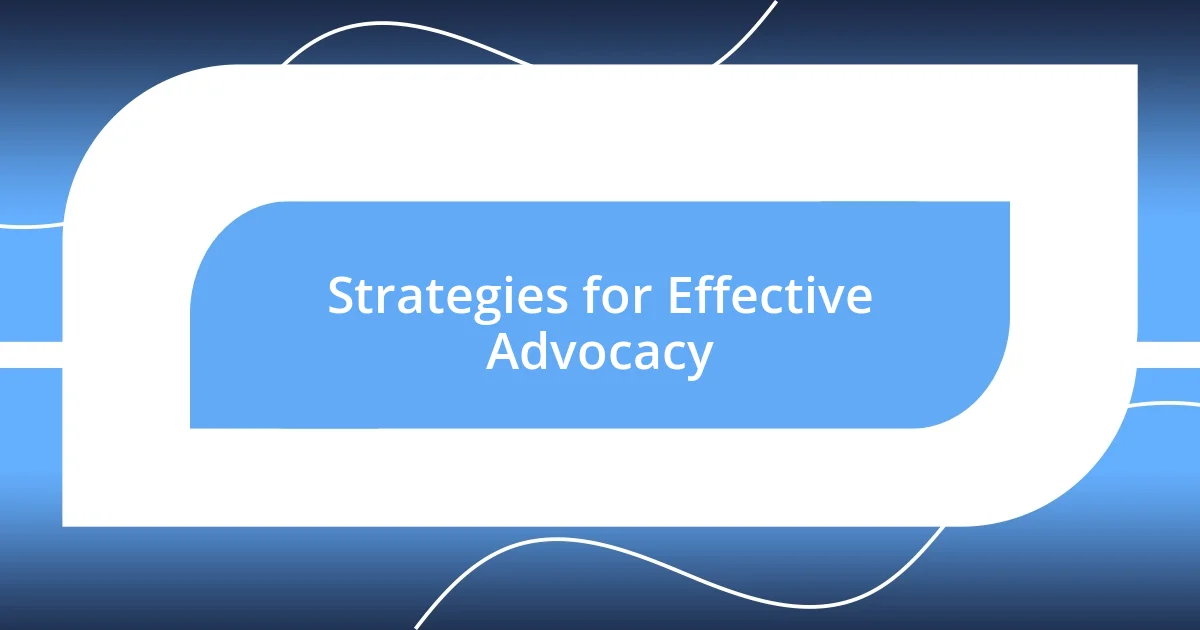
Strategies for Effective Advocacy
Effective advocacy hinges on strategic communication. During one of my earliest initiatives, I learned that messaging matters deeply. For instance, while crafting a campaign around affordable housing, we found that using relatable stories about clients whose lives changed due to new policies resonated far more than statistics alone. I often wonder: how can we bridge the gap between data and personal stories to engage the public more effectively?
Building relationships is equally crucial in advocacy. One memorable experience for me involved reaching out to local businesses during an anti-discrimination campaign. By fostering conversations about mutual benefits, such as increased diversity, we were able to ally with some unexpected partners. This collaboration taught me a vital lesson: advocacy isn’t always about confrontation; sometimes, it’s about creating connections. How can we leverage these relationships to amplify our messages further?
Lastly, being adaptable and open to feedback can transform advocacy efforts. At one rally, our original agenda shifted dramatically when we heard urgent pleas from community members who felt overlooked. Adapting our approach on the spot was uncomfortable yet necessary, and it reminded me that effective advocacy is not just about our agenda; it’s about prioritizing the voices we are advocating for. I’ve come to realize: how often do we adjust our plans based on those we aim to support and uplift?
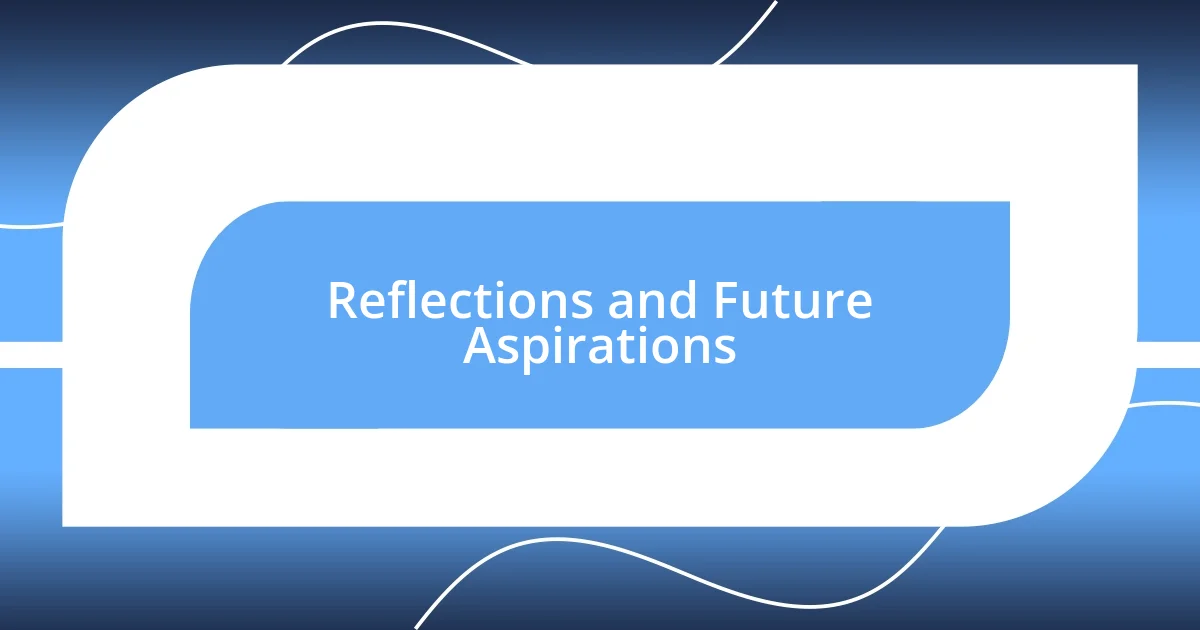
Reflections and Future Aspirations
Reflecting on my journey, I recognize how each experience has shaped my understanding of social justice. For example, I vividly remember the first time I spoke at a community forum. My hands shook, and my voice wavered, but the encouragement from the crowd grounded me. It made me realize that stepping into discomfort is often where growth happens. I can’t help but ask myself: how many people hesitate to share their truths out of fear, and how can we change that narrative?
Looking ahead, I envision a future where collaboration among diverse groups becomes the norm. Recently, while facilitating a workshop, I was struck by the creative synergy that emerged when participants from varied backgrounds pooled their ideas together. The innovative solutions we generated made me excited about the potential for collective impact. So, I keep asking: what if we had more spaces that foster such creativity and understanding in our cities?
As I think about my aspirations, I can’t ignore the need for continued learning and self-reflection. In one of my more trying moments, I had to confront my own biases during a group discussion—it was uncomfortable, yet enlightening. This experience taught me that personal growth is just as important as collective efforts. I wonder: how do we balance our desire for progress with the ongoing need to evolve individually?
